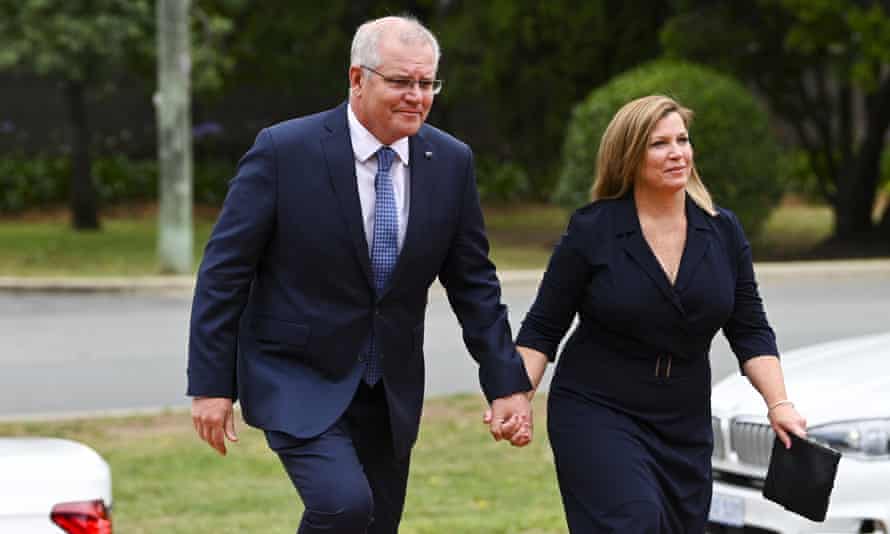Extract from The Guardian
‘My wife set me straight’ is a trope older than time. What’s required isn’t a new bit of advice, it’s a substantial cultural and institutional shift.

Last modified on Tue 16 Feb 2021 14.09 AEDT
It’s a funny thing. Scott Morrison was trying to explain why he was doing things on Tuesday that he should have done on Monday.
The prime minister credited his wife Jenny with setting him straight. Jenny Morrison told the prime minister on Monday night that when it came to a former member of government staff alleging she’d been violated on a couch in Parliament House, he needed to respond as a father.
He needed to think how he would feel if this were to happen to their girls.
Presumably Mrs Morrison was asking her husband to summon his inner human (a quality that the rolling fight club of politics, over time, works assiduously to suppress).
But the truth is nobody needs Morrison as Australia’s father.
Nobody needs a paterfamilias right now – they need a prime minister.
As Tegan George, the Network Ten journalist, pointed out with a sharp question at the prime minister’s press conference, women who have been placed in terrible positions need Morrison to be thinking as the leader of the country – not waiting for an emotionally intelligent spouse to map a course correction.
My wife set me straight is a trope older than time. What women trying to negotiate hostile environments are waiting for is not an arbitrary system of spousal course correction. They are waiting for powerful and intelligent men to reset their own plumb line.
If anything is going to change with the culture in Parliament House and for the survivors of sexual abuse and assault in the community more generally, people in positions of authority need to understand, without prompting, that they have a non-negotiable obligation to prevent and minimise harm.
Creating meaningful change requires a leader to understand their responsibility to shift the power imbalances that can lead to indefensible behaviour. Australian politics desperately needs a culture of consequences – because in so many ways, in so many different manifestations, that’s the missing element here.
Right now, if you speak to women in politics, you will hear the default culture is permissiveness followed by cycles of damage control. Both of these dynamics – the predation and the clean-up – are dehumanising.
What will actually change this dispiriting cycle is something more fundamental.
Right now, politicians, from the most benevolent to the most difficult, run their offices feudally. That culture – the political office is an enclosed court revolving around the all-powerful regent – sustains their otherwise unsustainable operations.
Political staff like Brittany Higgins serve at the pleasure of the boss and the senior staff that have the boss’s ear. They have no independent agency, and no status to negotiate with the default workplace culture. You either swim fast, adopt the norms and thrive, or get winnowed out.
Morrison said on Tuesday he wanted to provide a safe workplace.
It’s hard to argue with safety as an aspiration.
But what’s actually required is something much more radical – a more equal workplace, with normalised human resources conventions, where it is understood that everyone present, no matter how junior, has valid aspirations and basic rights, including the right to have their problems addressed independently rather than risk-managed through the prism of how it might reflect negatively on the principal.
A more equal workplace is actually the necessary precursor to a more safe environment.
Let’s see where Morrison’s new processes actually lead.
Perhaps he will insist on a genuine breakthrough.
But it is increasingly obvious that what’s required isn’t a new bit of advice, it’s a substantial cultural and institutional shift.
The Labor MP Peta Murphy says part of the answer could be a special unit, a parliamentary commission, completely independent “where people could go to get proper independent advice and also be referred to or receive the sort of counselling they need”.
Morrison would be wise, as a starting point, to listen to that advice.
Katharine Murphy is Guardian Australia’s political editor
No comments:
Post a Comment